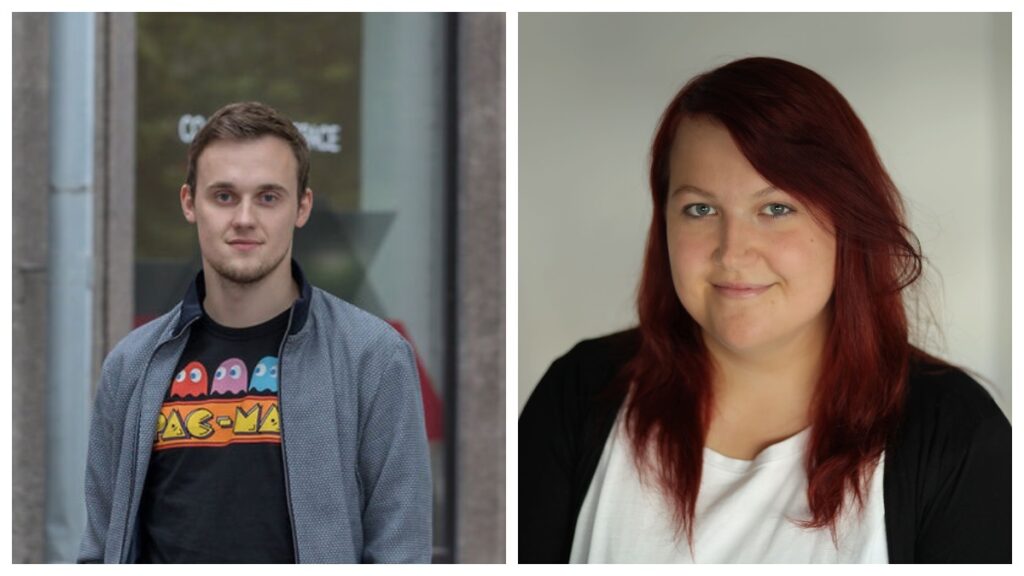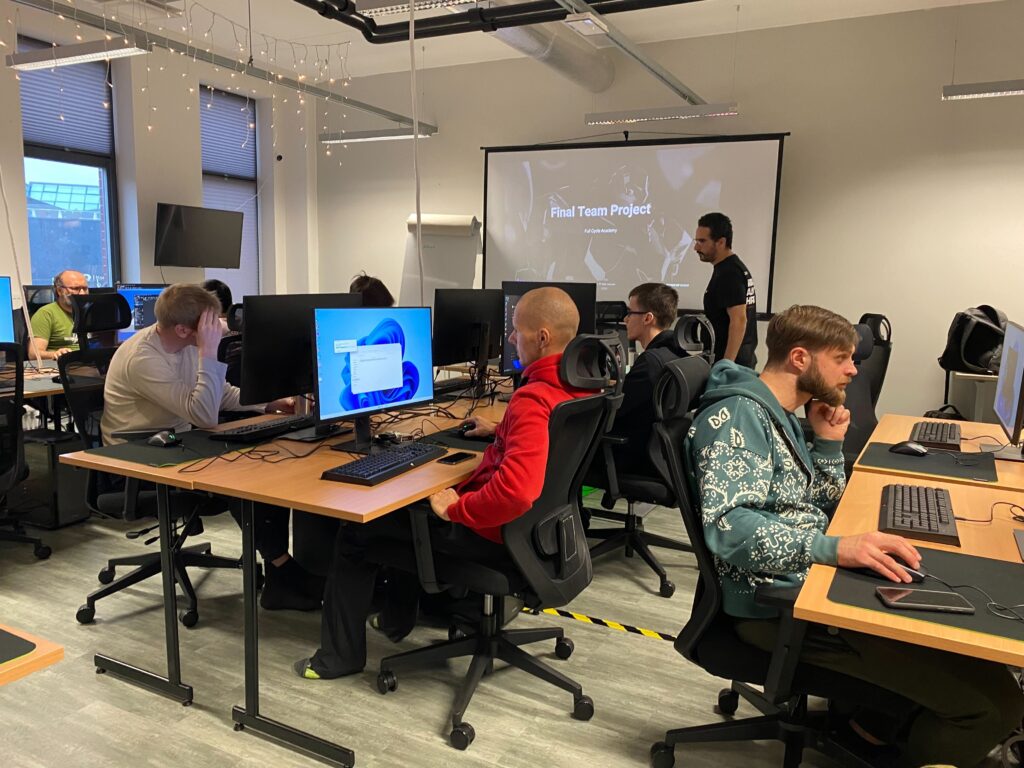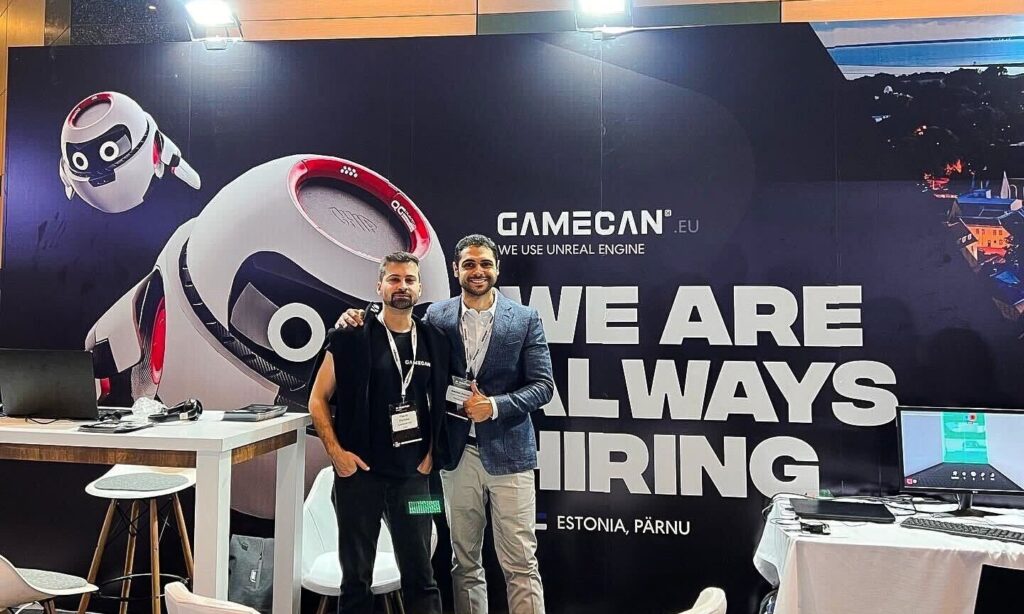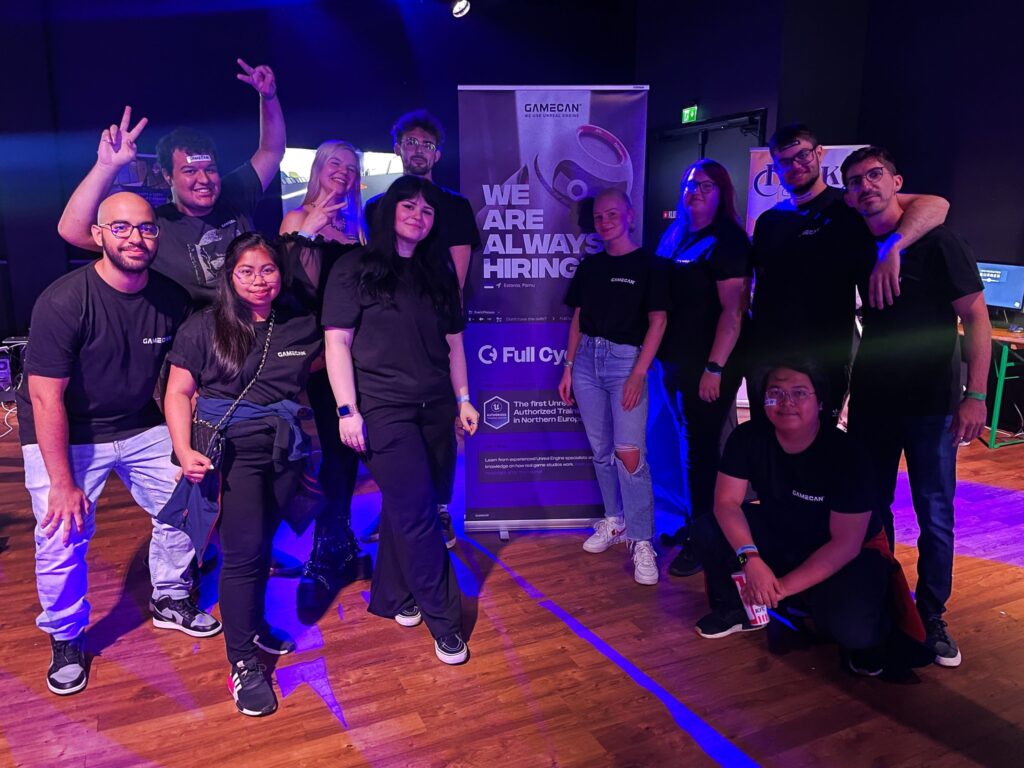The Pärnu-based video game developer, Gamecan, became the region’s first studio to offer an intensive course in game development using unreal engine when it launched classes earlier in September.
Gamecan, the first studio to teach unreal engine for game development throughout the region is located in Pärnu, an Estonian resort town of 40,000 people.
Unreal engine is an open platform suite of tools for creating realistic and immersive visuals in real-time 3D computer graphics, with a unique application in gaming. Having first appeared in 1998, its programming language is C++. Now in its fifth generation, unreal engine is quickly bridging the uncanny valley, leaving iconic characters like Pac-man to simply scratch their heads in amazement.
What do Gamecan and Pärnu have in common?
Gamecan is a studio that was founded in 2015 using the unreal engine technology to develop its portfolio. Located in Pärnu, the fourth largest city in Estonia, the region is well known for its beach and serves as a favourite summer holiday destination not only for Estonians but also the Finnish.
According to Gamecan’s CEO, Marten Palu, and education project manager, Maret Saluste, despite not being a capital city, Pärnu offers all the necessary infrastructure and resources while still keeping a tight-knit, small-town atmosphere.

Apart from developing games, Gamecan recently began offering a course, called the Full Cycle Game Academy, for anyone who wishes to become a game developer. Marten and Maret explain that anyone with the desire to learn can join the course, which takes nine months to complete. The inaugural session kicked off the second week of September 2022 and has 23 students from various countries including Finland, Azerbaijan and Argentina, as well as Estonia.
The teachers – or lecturers as they are called at Gamecan – also represent different nationalities and industry professionals, all of whom work at the studio. What’s more, the classes function more like game development theory and philosophy lectures as opposed to graphs and formulas.
Why can anyone join their course?
The students confirm that, even with little to no programming experience, it is possible to join this group of aspiring game developers. Some say it only took a couple of weeks of self-studying to learn the basics of C++, or at least enough to attend the classes with a minimal learning curve. All they needed was discipline and a passion for video games.
Palu and Saluste also emphasise that – except in Danish and Lithuanian universities, where it takes years to finish this kind of course– no similar programme is being offered in the Nordic or Baltic countries. And this is the reason why even Finland, the region’s leader in game development, is represented among the student body.

Growing with the city
Palu, an entrepreneur who didn’t attend university nor finish high school, studied until ninth grade before entering the world of games through Playstation, in 1996. He is passionate, still plays every day and says this is just the beginning: with the financial and real estate support of Pärnu County, he and his team are hoping to at least double enrollment numbers in 2023.
Do virtual and real worlds collide?
The narrowing gap between the virtual and real worlds raises a question: will there always be a separation between the two? Palu, who has a background in dancing and founded the Pärnu-based Black and Brownie dance school, underscores that physical and virtual worlds can be complementary, saying “regardless of how, self-expression is the achievement every individual should aim for.”
Whether it be through his dance school or with Gamecan, Palu’s goal in Pärnu is to foster an environment in which young people choose to stay in the city while building sustainable solutions themselves. For instance, he plans to create new jobs for the city’s youth and help future entrepreneurs get their ideas off the ground.

Just like “Donkey Kong” was parlayed into the “Mario Bros” universe, games today appeal to a whole range of tastes and scenarios: from exploration, puzzle solving and fighting to team working, strategic warfare and radical sports. Simply put, the possibilities are virtually endless.
Moreover, what once was a subculture of die hard fans developing titles like “Space Invaders” and “Adventure” has become a more viable reality for young gamers whose parents encourage them to pursue the profession.
“Students who finish our course will be highly employable as juniors,” says Palu. What used to be viewed as simple entertainment for kids has broken boundaries within the real world. Now, Gamecan, Pärnu and future game developers are investing in it.

